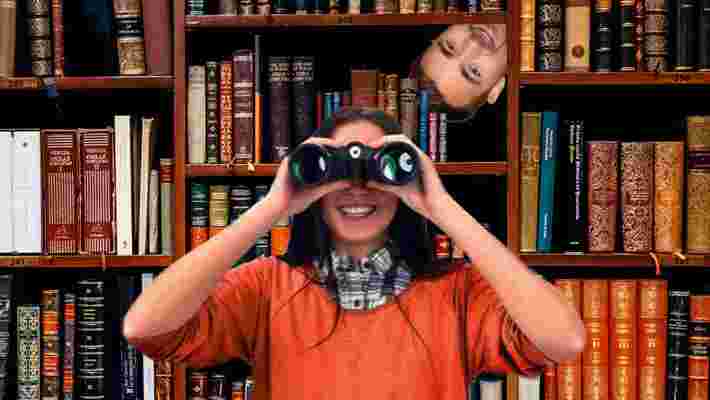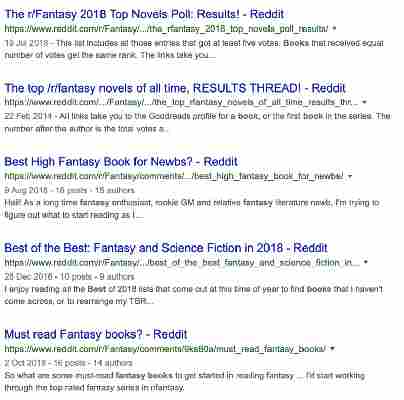Novel ways to find what book to read next, curated by a huge word nerd
Hi, I’m a huge word nerd. And I’m sure you’ll agree: reading is great! It’s like a word-movie in your mind, but without the crushing self-doubt that comes from looking at people too attractive to be right.

Thing is, how do you know what to read next? You can only read so many books in your lifetime, how do you know they’re gonna be good? Well, I’ve got some tips to help you find your next favorite word splurge. Here are the best ways to do just that.
1) Get on Goodreads
Yup, this is the big daddy and probably the easiest way to get recommendations. Basically, Goodreads is a book-based social network that lets you track what you’re reading.
It even links up with Amazon (because, you know, it’s owned by the Bezos behemoth) and can pull all your book purchases from the site onto your profile.
Once you’ve done that or added books manually, you should rate them. Then, Goodreads will throw you up some recommendations.
I’ve found Goodreads pretty useful over the years. Its recommendations are decent, but it comes into its own in motivating you to read more, mainly thanks to the reading challenge . Anyway, Goodreads is a vital tool for the online avid reader, go check it out.
2) Refer to Reddit
Now, I’m not just talking about subreddits like r/Books or r/SuggestMeABook – even though both of them are useful to browse.
Instead, I’ve found some of the best books I’ve read recently by doing a search like: “ best fantasy books reddit .”


This is hardly rocket science, but it pulls up a whole load of options for you to explore. By doing this for various subgenres (thriller, science, politics, etc.) and looking up Goodreads reviews alongside them, you can easily find the perfect book.
Honestly, this method has led to me discovering some of my all-time favorite novels.
Of course, there are limitations. What you’ll get are the most popular books, not necessarily the best. It’s at its most useful if you’re looking to read a specific genre or type of book, which isn’t always the case.
3) Peruse prestigious awards lists
You know what’s great about the internet? It’s filled with information you can take advantage of. Like, you know, the winners of the:
Pulitzer Prize for fiction
Booker Prize
Hugo Award
Nobel Prize in Literature
Of course, there are a whole load more awards than those above, but there’ll be more than enough novels here to get you started.
4) Reach for random web tools
Ah, web tools. I’ve not found the best success using these by themselves, but they do work well if you go and read reviews or find some more info elsewhere.
Now, I’ve ranked these from my most to least favorite – even if they’re all still useful. First up:
What Should I Read Next? : I like this one a lot. Basically, you put in a book or author that you dig, and this pumps out a whole load of recommendations.
Recommend Me A Book : I love the idea behind this. You click a button and the site shows you a first page from a book. The best part? It doesn’t tell you what the novel is until you press “reveal.” It’s a wonderful idea, my only issue is it accepts paid placements and user submissions, even though both are curated. While I’ve seen some good novels while clicking through, I’ve been less enthralled with others. Still, it’s cool.
Whichbook : This tool uses a slider to help you select what sort of book you’d like to read. I wouldn’t take it as gospel, but it’s a great place to explore books from.
Gnooks : This tool asks you to put in three authors you like and then recommends you another writer. Personally, I don’t think it’s accurate enough – but it’s still worth a look.
So, there you have it! A selection of ways you can find your next book. As it is with most things, the best way to find something sweet to read is to use a combination of methods above. Double check reviews, look up other recommendations, and you’ll be falling in love before you know it.
*the book was Richard Adams’ Watership Down!
At TNW 2019, we have a whole track dedicated to exploring the role of art and technology in the modern world. Find out more here .
